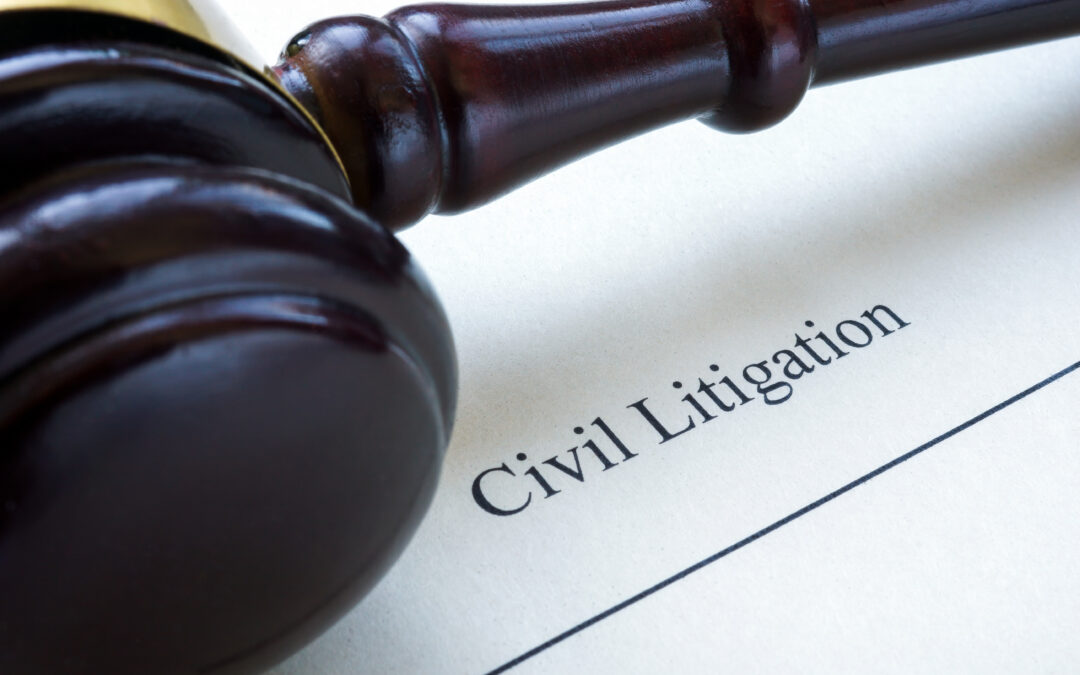Six Common Misconceptions About Starting a Lawsuit
The thought of filing a lawsuit can be daunting for many potential litigants.
However, not all disputes can be resolved with a simple phone call or letter. When parties are unable to settle their differences on their own, turning to the court system often becomes the logical next move. But what does it really mean to file a lawsuit, and what can you expect from the process?
We aim to clarify some common misconceptions about civil litigation in the hopes of shedding light on a process that might seem complex and intimidating.
Misconception 1: Commencing a lawsuit guarantees your “day in court.”
The dramatic courtroom showdowns we see in TV shows and movies are quite rare. Most lawsuits (roughly 98% according to the federal government) are resolved long before a trial begins.
Civil litigation is fundamentally about resolving disputes. Parties should continuously assess the strength of their positions and adapt to new developments. The litigation process involves various stages that allow both sides to delve into the issues at hand and explore opportunities for resolution.
For instance, after filing a lawsuit, many cases enter the “discovery” stage, during which both parties share relevant evidence with each other and answer questions under oath. The other side may hand over an email or text message which alters your understanding of the facts. It’s common for parties to reevaluate their cases after reviewing the evidence, and negotiations that had stalled prior to discovery might be resurrected.
Additionally, there are alternatives to going to trial. Mediation and arbitration allow parties to hash out their differences on a speedier and more cost-effective basis. These forms of alternative dispute resolution allow for a more tailored approach to your specific dispute and encourage participants to reach mutually agreeable solutions.
All of this is to say: filing a lawsuit on Monday does not mean you’ll be getting cross-examined by Friday. The wheels of justice move slowly and there are many stages in the litigation process, and most cases resolve in the earlier ones.
Misconception 2: If you lose, you can appeal and get another kick at the can.
Appeals are not a chance to rehash the arguments you unsuccessfully made in front of a new judge (or group of judges) who will hopefully be more sympathetic. If they were, achieving a final resolution would be all but impossible, as every losing party would appeal in perpetuity.
Instead, appeals are intended for situations in which the judge who heard your case either (i) misunderstood the facts in your case or (ii) incorrectly applied the law. The judge who first heard your case is given “deference” on appeal, meaning inconsequential errors are not likely to make a difference on appeal.
Don’t get us wrong – you can try to appeal many decisions you disagree with, but doing so without a strong legal basis is a foolish and costly exercise. Appeals are better suited for when judges commit serious errors – not simply when you disagree with their conclusions.
Misconception 3: If you win, the other side will pay all your legal fees.
In civil litigation, the losing party usually pays a portion of the winning party’s legal fees—typically around 60%. However, it’s rare for the court to order the losing party to cover the entire legal fees of the winning party—this might only happen if the losing party’s behavior was particularly egregious, which is a very high standard to meet.
Many litigants claim their lawsuits are about principle, not money. But this sentiment can change when a judge rules against them, and they’re on the hook for significant legal fees as the losing party.
Make sure you have a frank conversation with your lawyer about the costs of litigation and go in with a clear view to your potential risk and expenses.
Misconception 4: Filing a lawsuit will ruin your reputation.
Many people avoid pursuing valid claims because they fear being publicity associated with lawsuits. While filing a lawsuit in Ontario Superior Court does make it a matter of public record, it’s unlikely your name will be splashed across the front page of The Globe and Mail.
Litigation records are stored by the Superior Court and accessible through an online portal that requires more effort than a standard Google search. While prospective future employers may conduct litigation searches, it’s not a common practice. In short, the risk of reputational harm by commencing an action is often overstated.
Misconception 5: Someone’s going to jail.
Unlike criminal court judges who can impose jail sentences, civil court judges typically don’t have that authority.
Some litigants mistakenly believe that once a judge reviews their evidence, they’ll be compelled to send the opposing party to jail. This confusion stems from the distinction between civil and criminal court proceedings.
Civil litigation enables you to seek monetary compensation (damages) for a variety of wrongs. You can sue a former employer for unpaid overtime, a handyman for botched repairs, or a neighbour for damaging your mailbox. The focus is primarily on “making you whole” – not on throwing the other side into jail.
Misconception 6: Your success is guaranteed.
There’s no such thing as a “surefire win” in litigation. Unfortunately, many litigants believe their case is an exception to this rule.
The litigation process is inherently uncertain, and outcomes are never guaranteed. If your case does go to trial, various factors beyond your control and your lawyer’s can influence the outcome. While it’s not entirely based on luck, and some cases are stronger than others, it’s essential to be alive to worst-case scenarios and prepare accordingly.
Lawyers typically don’t promise success. Instead, effective lawyers guide you through potential outcomes, advising you on their likelihood. This empowers you to make informed decisions at every stage of the litigation process.
If you’ve been fired or mistreated by your employer and have questions or inquiries regarding your rights and commencing a lawsuit, contact Zubas Flett Liberatore Law at 416-593-5844 or questions@employment-lawyers.ca.

